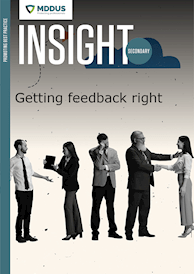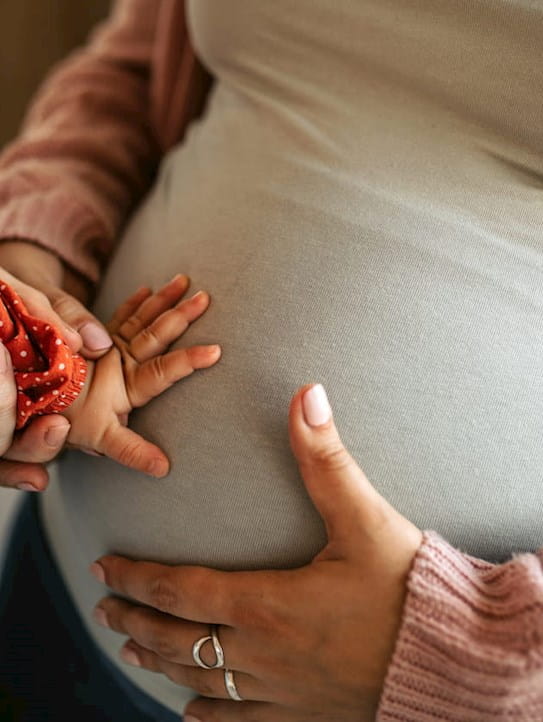IT’S been well established that pregnancy risks in the UK are significantly higher for women from ethnic minority backgrounds. Numerous research studies have found that women of Black and Asian ethnicity have stillbirth and neonatal mortality rates two to three times those of White women – and these disparities persist even when deprivation and other socioeconomic and demographic factors are taken into account.
Professor Basky Thilaganathan, clinical director of the Tommy’s National Centre for Maternity Improvement and a consultant obstetrician and director of fetal medicine at St George’s University Hospital, said: “We know that the causes behind health disparities are multifactorial and incredibly complex, and can include socioeconomic deprivation, medical comorbidities, reluctance to access healthcare, implicit racial bias, a lack of high-quality research and a large gender data gap. However, we should not lose sight of the possibility that solutions for tackling these inequalities may be simple and achievable.”
Professor Thilaganathan has himself been instrumental in the development of one possible solution that was recently awarded £1.8 million in funding through the National Institute for Health and Care Research (NIHR).
The Tommy’s Pathway is an online clinical decision support tool that improves upon the current method for assessing the risk of preterm birth or developing problems within the placenta that may lead to stillbirth. It has been developed by a multi-professional team across academic and charitable partners. These include the University of Bristol, the University of Sheffield, St George’s University of London, King’s College London, and the charities Mothers for Mothers and PROMPT Maternity Foundation, comprising practising midwives, obstetricians, academics and a group of women with lived experience of pregnancy.
More than a checklist
The Royal College of Midwives has pointed out that the current standard method for antenatal risk assessment remains the same as it was in the 1970s. It involves using a checklist (detailed in NICE guidance) that assesses the presence of certain risk factors but does not take maternal ethnicity into consideration, nor does it weigh or assess the interaction between risk factors. It is also known to have a high screen-positive rate and a low detection rate.
Efforts to develop a better approach to the assessment of antenatal risk have been led by the Tommy’s National Centre for Maternity Improvement. Tommy’s is a UK charity formed in 1992 to fund research into the causes and prevention of pregnancy complications, miscarriage, stillbirth and premature birth. The Tommy’s National Centre for Maternity Improvement was formed in 2019 by the Royal College of Obstetricians and Gynaecologists (RCOG) and the Royal College of Midwives (RCM), with funding from Tommy’s.
The Tommy’s Pathway was developed as a mechanism to enable the use of clinically-validated machine learning algorithms during antenatal care. These algorithms process details gathered at antenatal appointments and also information entered by patients themselves through an online app. Risk factors for placental dysfunction (which can show as pre-eclampsia or restricted fetal growth) and preterm birth are analysed to assess risk and offer care recommendations that are in line with national clinical guidelines, to help lessen that risk.
Promising research
A recent study published in the British Journal of Obstetrics and Gynaecology assessed the effectiveness of the new approach compared to the standard NICE checklist. The study followed 20,651 pregnant women from July 2016 to December 2020, who underwent routine first trimester pre-eclampsia assessment. A cohort of 8,080 women assessed with conventional NICE criteria was compared to a cohort of 12,571 women screened with the algorithm-based risk assessment tool used in the Tommy’s Pathway. Women considered at high risk in this second cohort were offered 150 mg aspirin before 16 weeks' gestation, serial growth scans and elective birth at 40 weeks.
The researchers found significant inequalities in pregnancy outcomes for mothers from ethnic minority backgrounds when the standard NICE screening was used – 7.95 deaths per 1,000 births compared to 2.63 per 1,000 births among White mothers. But when the new screening algorithm was used in conjunction with targeted care, the perinatal mortality rates were equalised between ethnic groups.
A previous study also found that changing from standard NICE screening to the new algorithm led to a 23 per cent reduction in the prevalence of pre-eclampsia, which is a significant cause of perinatal death.
Professor Thilaganathan said: “It’s incredibly exciting to see that changing from the standard pregnancy risk factor checklists to our new approach can directly address and almost eliminate a large source of the healthcare inequality facing Black, Asian and minority ethnic pregnant women.
“The current maternal risk-factor screening programme is limited and can contribute to ongoing racial inequalities – but our algorithm can account for these deficiencies, enabling us to truly personalise care rather than treating large groups in the same way, and ultimately improve pregnancy outcomes.”
These promising results have been instrumental in the centre securing NIHR research funding. The £1.8 million grant will support a further trial led by the University of Bristol to implement the Tommy’s Pathway across 26 NHS Trusts for 36 months. The ultimate aim is for the Tommy’s Pathway to be rolled out UK-wide.
Kath Abrahams, chief executive of Tommy's, said: "Sadly in the past year we have seen the number of stillbirths in parts of the UK rise and inequalities in access to good care widen. By supporting healthcare professionals to offer the right care at the right time during pregnancy, we hope this important new technology will help meet our goal of making the UK the safest place to give birth."
This page was correct at the time of publication. Any guidance is intended as general guidance for members only. If you are a member and need specific advice relating to your own circumstances, please contact one of our advisers.
Read more from this issue of Insight Secondary

Save this article
Save this article to a list of favourite articles which members can access in their account.
Save to library

